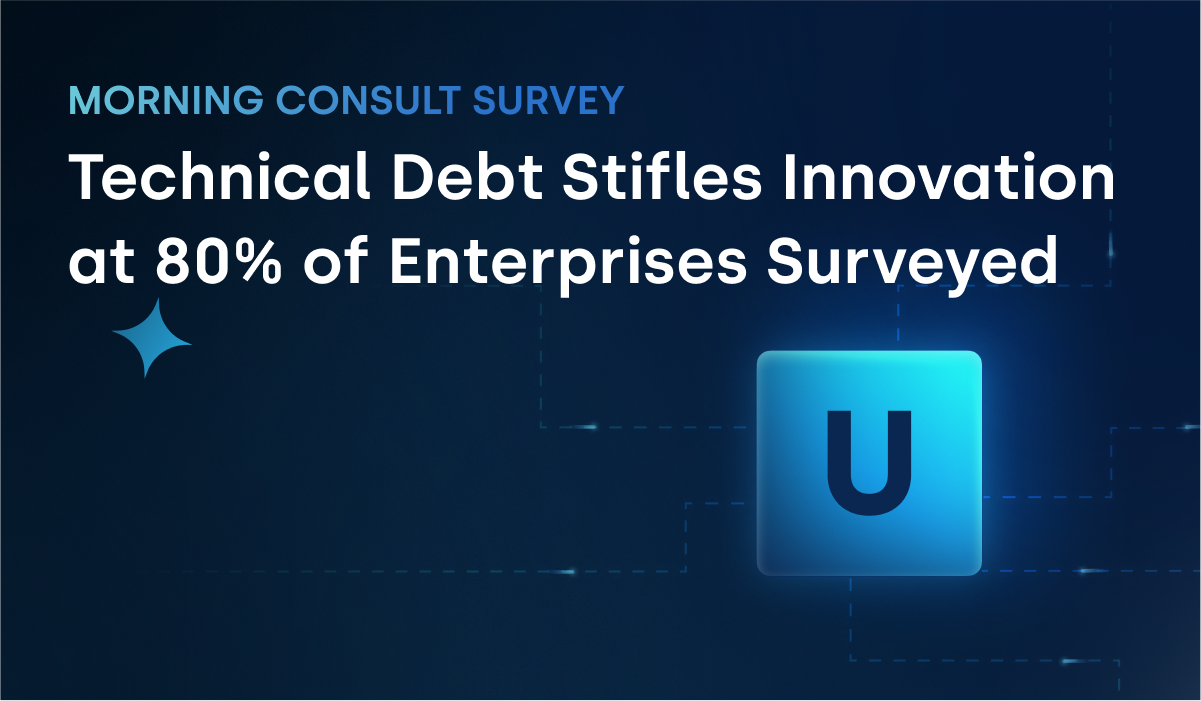In the age of Amazon, Netflix, and Uber, healthcare providers are under increasing pressure to deliver modern digital experiences, including ubiquitous on-demand access to information and services. A recent study found that 82% of patients surveyed believe it should be “as easy to get healthcare on my mobile device as it is to order food or a car/rideshare.” In short, they want seamless, connected experiences that they can manage from their mobile device, from finding providers and scheduling appointments to virtual visits and easy access to information about follow-up care.
In the race to meet such expectations, traditional providers face increasingly sharp competition from a slew of digital-first healthcare startups. They are raising record amounts to build a new generation of digital health solutions, from on-demand virtual care to clinical intelligence and enablement. At the same time, the federal government is pressuring providers to expand the digital delivery of healthcare, especially for disabled patients and those who live in rural and other underserved communities.
In addition to these drivers of change, COVID has forced even laggards to adopt digital solutions with unprecedented speed. In addition to a massive increase in the delivery of telemedicine, the pandemic has massively accelerated timelines for digital initiatives, according to McKinsey. It is now estimated that providers will spend $210 billion on digital transformation in 2025, almost 3x more than in 2018.
Most healthcare providers still have a long way to go. The industry has “long been a laggard in digital adoption,” according to McKinsey analysts. And patients are losing their patience. A recent report in the Harvard Business Review found that 62% of consumers believe healthcare systems are designed to be confusing. And nearly two-thirds “feel like a general contractor,” because they must coordinate and manage so many different aspects of their own care, from managing appointments with multiple providers to providing their own post-operative home care.
That said, there are serious, systemic reasons for healthcare’s slow embrace of digitization, including:
-
Process complexity: The inherent complexity of healthcare processes and the systems that support them, from billing to patient care
-
Disparate ecosystems: The burden of integrating disparate underlying technologies, including the third-party systems of insurers, testing services, and other service providers
-
Compliance risk: The fact that the regulatory landscape, particularly rules around patient privacy, are all at once strict, subject to constant change, and frequently lacking in clarity
-
High technology costs: In addition to the high cost of building bespoke solutions, updating and maintaining applications (and the systems they run on) are also expensive, often costing up to 60% of total spend, according to Accenture
Given these challenges, bespoke digital solutions tend to be both expensive and risky. At the same time, off-the-shelf solutions offer limited customization and lack the flexibility to address the needs of today’s fast-changing landscape.
Fortunately, the no-code development paradigm addresses exactly the challenges that healthcare organizations face. With Unqork’s all-visual development environment, developers—Unqork calls them Creators—can quickly design and build patient-facing applications for even the most complex processes, all without writing or editing a single line of code. And thanks to plug-and-play integration, Unqork applications connect seamlessly with underlying systems in order to support end-to-end transactions, from scheduling to the provision of care to billing.
With Unqork, Creators can add components to workflows and processes via an intuitive drag-and-drop interface. The platform ensures that the application logic will always be maintained even as technologies evolve, for example when components are updated. In this way, organizations can focus all their development resources on overcoming serving patient needs rather than technical challenges. Unqork also has a team of experienced technology and healthcare industry specialists who help ensure that all electronic protected health information (ePHI) is managed in strict accordance with the Health Insurance Portability and Accountability Act of 1996 (HIPAA) and other information security standards.
With an enterprise-grade no-code platform like Unqork, healthcare providers can quickly and securely side-step traditional barriers to digitization, improve outcomes, reduce administrative costs, and start delivering the kinds of modern experiences that patients are demanding.




